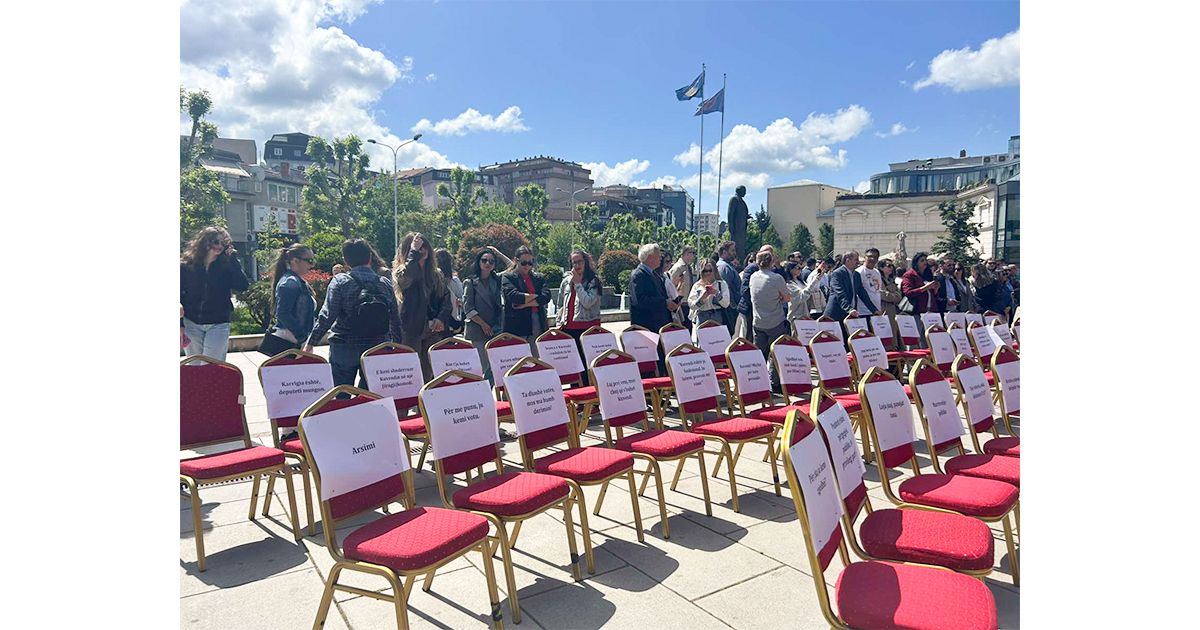Women’s affected by cancer in Mitrovica for a basic oncologist service, and to receive intravenous (IV) therapies, must travel to Pristina, since these services are not offered in the public health institutions in their city.
Therefore, the member organization of the Kosovo Women’s Network (KWN), the Center for Community Education and Development – CECD Friends, is advocating to municipal officials for the provision of these essential services within their municipality in the framework of its initiative “Cancer Survivors Advocating for Improved Health/Oncology Services in the Municipality of Mitrovica.”

Valbona Sadiku, the director of CECD Friends, emphasizes the importance of raising women’s awareness about their healthcare rights. To achieve this goal, the organization she leads conducted a workshop with women and girls affected by cancer as part of the “Cancer Survivors Advocate for Improved Health/Oncology Services in the Municipality of Mitrovica” initiative.
“This is the first workshop aimed at raising awareness of women’s rights regarding access to healthcare within the framework of this project. Fifteen participants are currently engaged in this meeting, gaining insights into the healthcare services that are lacking in public health institutions,” said Sadiku.
She emphasized the shortage of oncologists in the municipality of Mitrovica and the absence of IV therapy services in the Family Medicine Centers (FMC) and the Regional Hospital of Mitrovica. Consequently, women affected by cancer are compelled to seek this service in Pristina or resort to private institutions, incurring significant costs for their therapy.
“The purpose of this meeting is to advocate and draft complaints and then forward them to the relevant institutions so that this municipality has basic services”, Sadiku siad.
Meanwhile, trainer Egzona Rexha Shala emphasized that training is vital to make the community aware of the rights of women with cancer in healthcare.
She pointed out that most of these women lack awareness of their legal rights, resulting in a deficiency in advocacy and their ability to speak up about the challenges they encounter during their healthcare.
“The aim of this meeting is to advocate for and draft complaints, with the intention of subsequently forwarding them to the relevant institutions to establish essential services in this municipality,” said Sadiku.
Trainer Rexha Shala emphasized the critical importance of training in increasing community awareness regarding the rights of women affected by cancer in healthcare. She highlighted that a significant number of these women lack knowledge about their legally entitled rights, leading to a deficit in advocacy and their capacity to articulate the challenges they face during healthcare treatments.
“In the municipality of Mitrovica, unfortunately, this group lacks access to even the most fundamental health services, such as receiving IV therapy or low-cost therapies,” she said.
Mahije Ibrahimi, a participant in this meeting who is also affected by cancer, has expressed her concern that the city of Mitrovica and the entire surrounding area lack any oncology healthcare services.
“In the municipality of Mitrovica, unfortunately, this group lacks access to even the most basic health services, such as receiving IV therapy or affordable therapies,” she said.
“We, as cancer survivors, call upon state institutions like the Ministry of Health to take our concerns seriously. We request the approval of our petition to ensure that women in Mitrovica have access to an oncologist and a radiologist at least twice a month. Currently, we are forced to travel to Pristina and endure long wait times for these services and check-ups,” she explained.
CECD Friend carried out this activity as a beneficiary of the grant from the 18th Round of the Kosovo Women’s Fund, through the initiative of the KWN “Further Advancing Women’s Rights in Kosovo II,” which is financed the Austrian Development Agency (ADA), with co-financing from the Swedish International Development Cooperation Agency (Sida).



